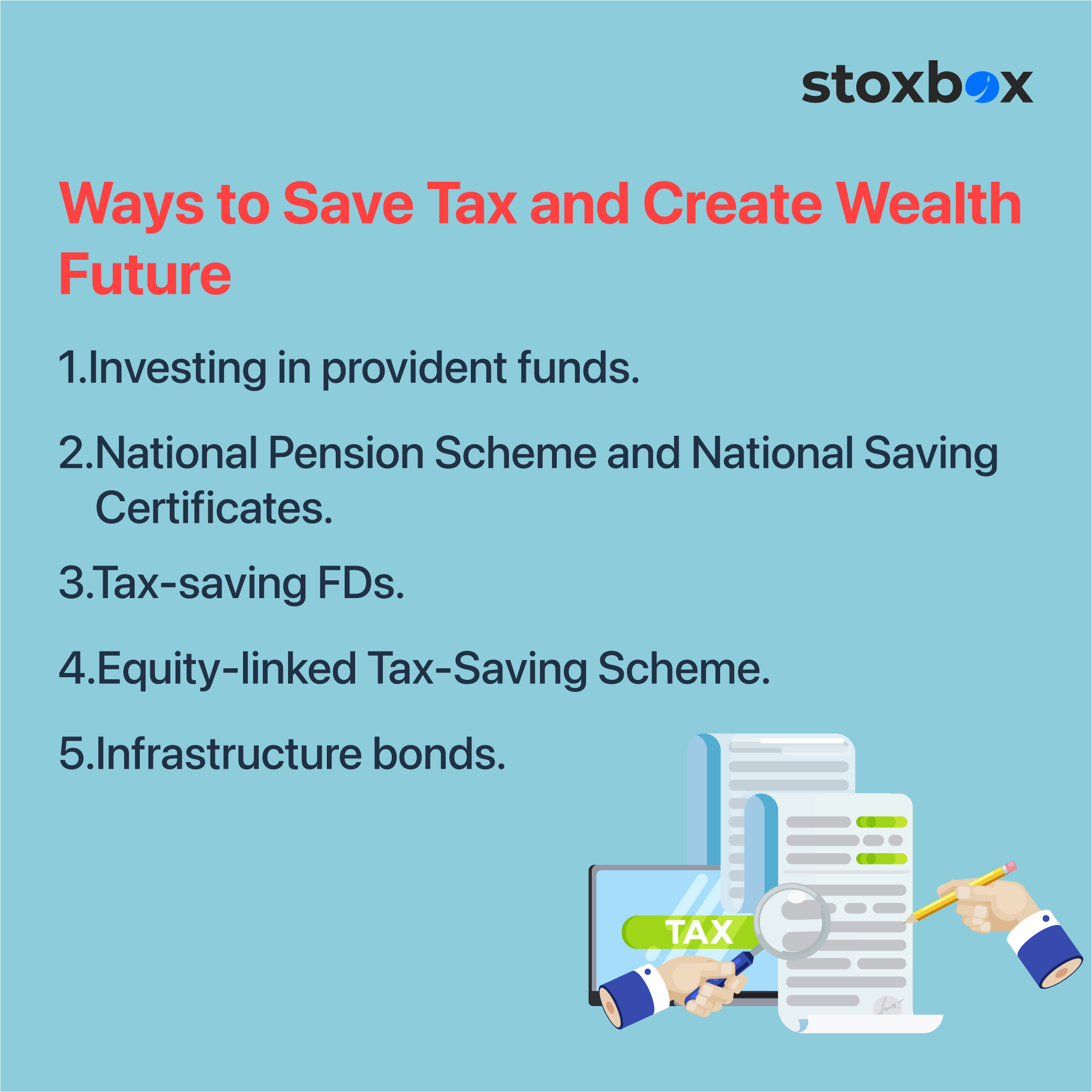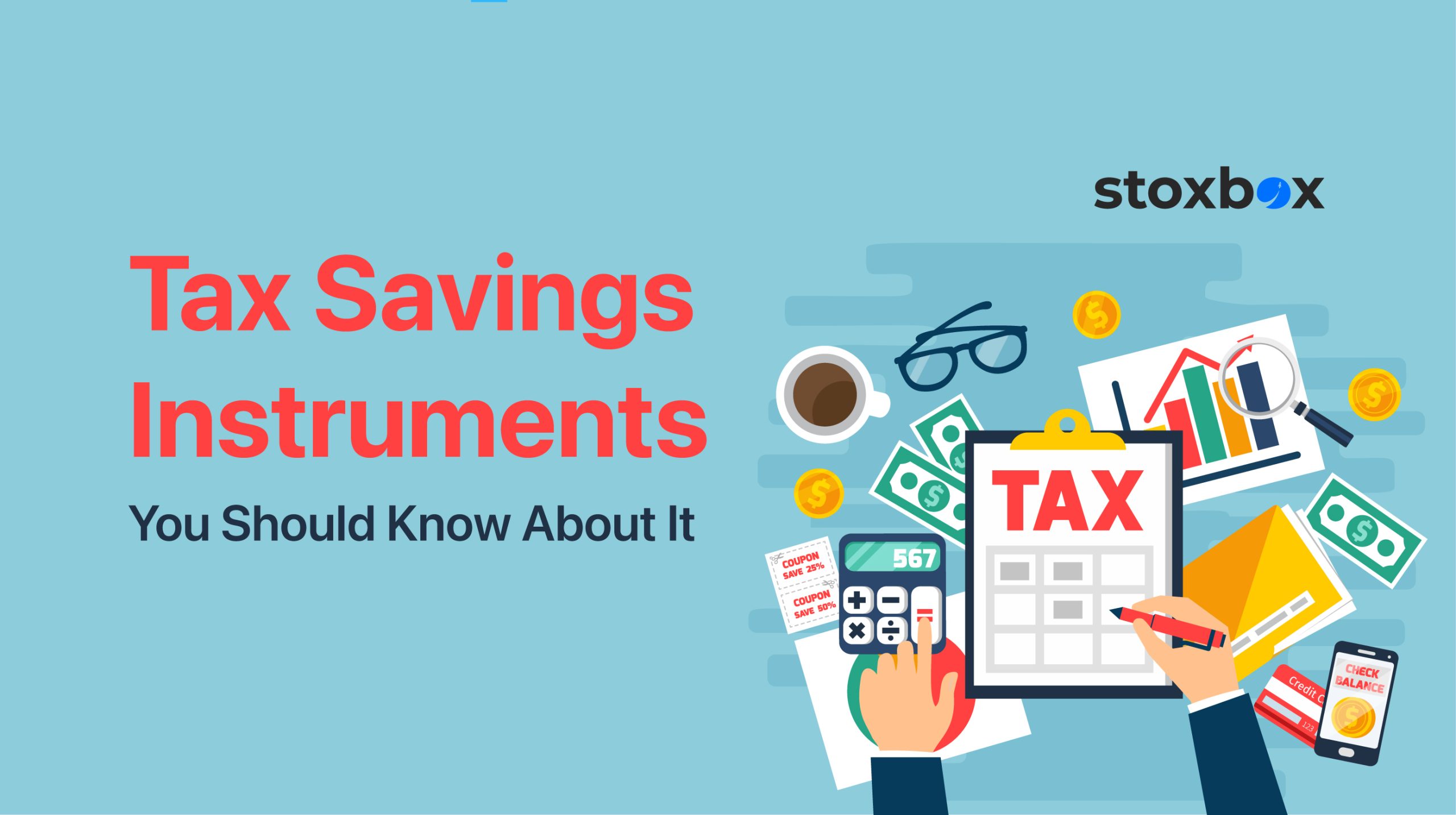Looking for ways to save your text here we have all the information
Table of Contents
Ways to save tax and create wealth
As it gets closer to the end of the financial year, all of us begin looking for avenues to limit our yearly tax outflows and save tax. Finding optimal ways to save tax and minimise the tax outflow is a dream come true for many, and today we will look at ways to ensure this . Along the way, these options will also help you save up and secure a nest egg for your retirement phase, ensuring that you can be independent and financially well-off even after your working days are over.

Some of the most popular ways of to save tax, while generating and accumulating wealth are:
Investing in provident funds
With pension, a distant reality in the private sector, and many government posts also cancelling the provision, it is up to you to create an ample retirement fund during the course of your tenure. The Employee Provident Fund and Public Provident fund are two avenues which offer tax-saving features while helping you to prepare for an independent retirement scenario. In an EPF scheme you can get a certain percentage of your income deducted every month and invested in the scheme. Correspondingly, your employer matches your contribution, subject to a maximum limit of 12% of your salary. On this combined contribution, you earn a fixed rate of interest, as determined by the government from time to time. Currently, the rate of interest on EPF is 8.5%. In addition, both the accumulated corpus, and the interest earned, can be withdrawn tax-free, after discontinuing your job. Under PPF, you are allowed to invest a maximum of INR. 1.5 lakh , each year, and both the accumulated funds and accompanying interest can then be withdrawn tax-free, at the end of the tenure.
National Pension Scheme and National Saving Certificates
A popular avenue to prepare for retirement while saving on tax is the NPS, which falls under the central government and offers safe returns over the long term. Your allocation to the NPS is valid for tax benefits as per Income Tax Section 80C, in addition to extra deductions ranging up to 50,000 rupees under 80CCD(1b) of the act. Another nationalised option is the NSC, wherein you have fixed deposit services offered by the Post Office. While the NSC offers slightly less interest than bank FDs, your money would be absolutely safe and you can enjoy tax-saving opportunities under Section 80C.
Tax-saving FDs
We have all heard of how fixed deposits can be a safe way to save money and earn interest, but did you know that you can enjoy tax-saving benefits under Section 80C? Just park your savings for 5 years and see your funds grow while saving on tax outflows.
Equity-linked Tax-Saving Scheme
If you are looking for tax exempt avenues for short-term savings, ELSS is your best friend as the instrument only requires a lock-in of three years, which is much lower than other comparable options. Add to it the fact that ELSS offers you the ability to invest in equities, and you are all set to partake in the growth of your country’s economy and industries. Further, you can start with an investment of just 500 rupees, meaning you won’t have to burn a hole in your pocket while beginning the journey.
Infrastructure bonds
Approved by the Government of India, these bonds are issued by infrastructure companies and offer you a risk-free tax-saving option with stable returns. As per Section 80C of the Income Tax Act, you can claim deductions on an investment of up to 20,000 rupees through this route.
It is important to note that while several instruments are eligible for deduction under section 80C of the Income Tax, the combined deduction allowed under this section is INR. 1,50,000. While the primary goal may be to save tax, these instruments can offer you the added benefit of bolstering your savings, so choose wisely and start investing right away!
Frequently Asked Questions
What are tax-saving investments, and why are they important?
Tax-saving investments are financial instruments that help individuals reduce their taxable income while fostering long-term wealth creation. They are crucial for optimizing tax liability and achieving financial goals.
Which tax-saving options are most suitable under Section 80C of the Income Tax Act?
Popular options include Equity Linked Savings Schemes (ELSS), Public Provident Fund (PPF), National Savings Certificates (NSC), and fixed deposits with a lock-in period.
How does ELSS differ from other tax-saving investment options?
ELSS funds invest primarily in equities and offer a shorter lock-in period of three years compared to other options like PPF or NSC, which have longer lock-in durations.
Are there any tax-saving options available for senior citizens?
Yes, the Senior Citizen Savings Scheme (SCSS) and tax-saving fixed deposits are tailored for senior citizens, offering tax benefits and steady returns under Section 80C.
What is the maximum tax benefit one can claim through tax-saving investments?
Under Section 80C, an individual can claim up to ₹1.5 lakh in deductions annually, while other sections like 80D (for health insurance) provide additional benefits.
Can I combine tax-saving investments with financial planning?
Absolutely. Tax-saving investments like ELSS and PPF not only reduce tax liabilities but also contribute to building wealth, securing retirement, and meeting long-term financial objectives.
What should one consider before choosing a tax-saving investment?
Factors like lock-in period, risk appetite, returns, and alignment with financial goals should be evaluated to select the most suitable tax-saving option.
You might also Like.
No posts found!
